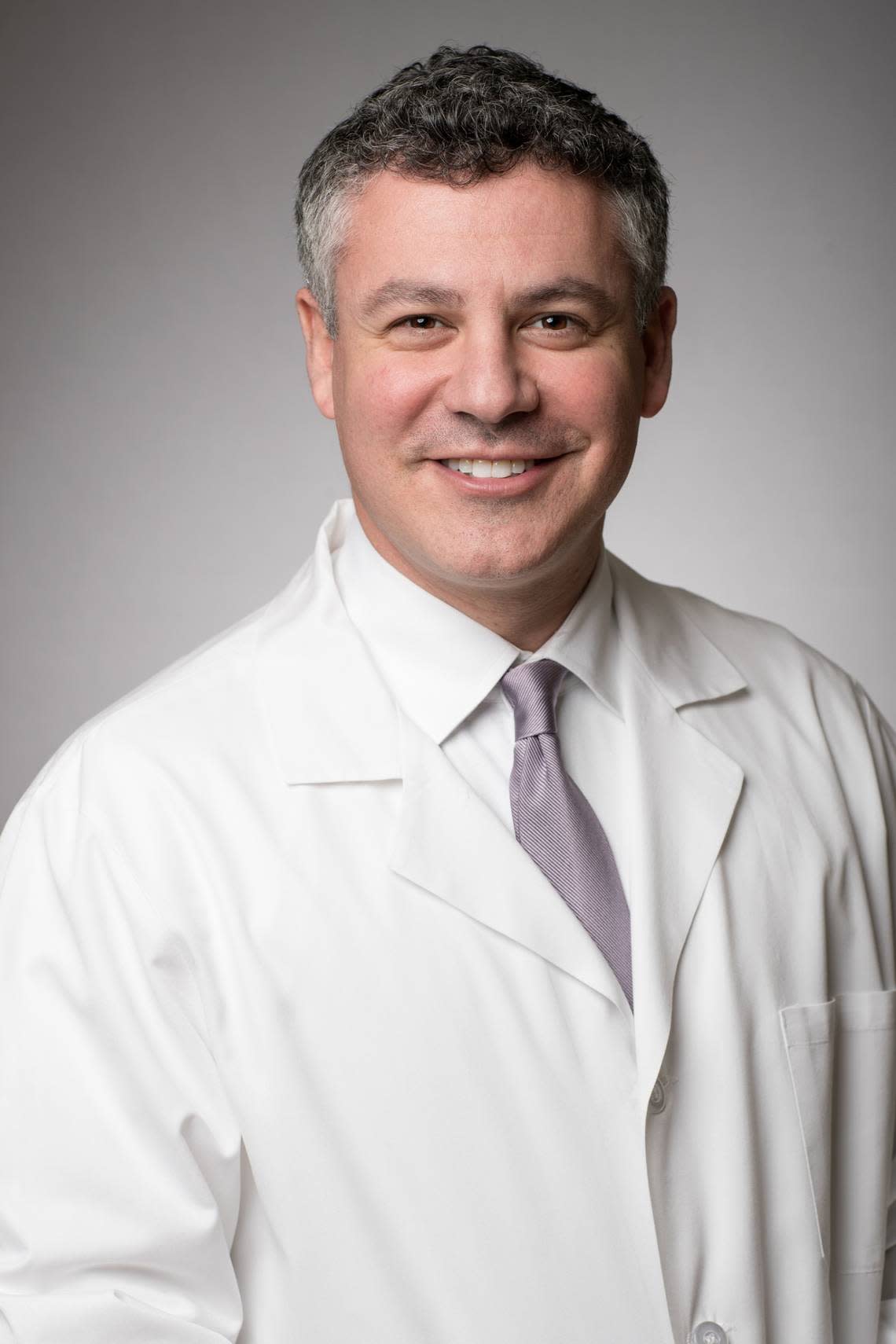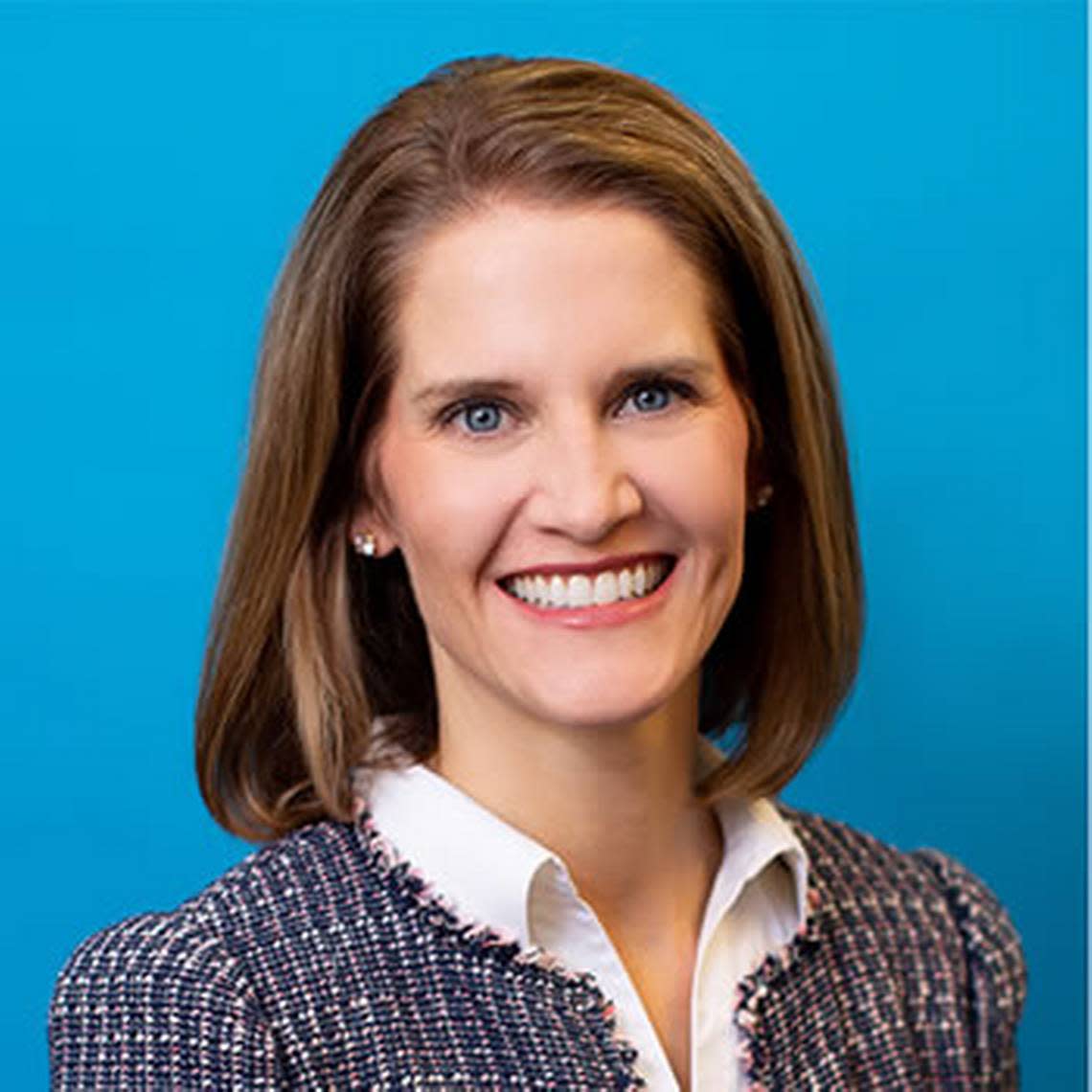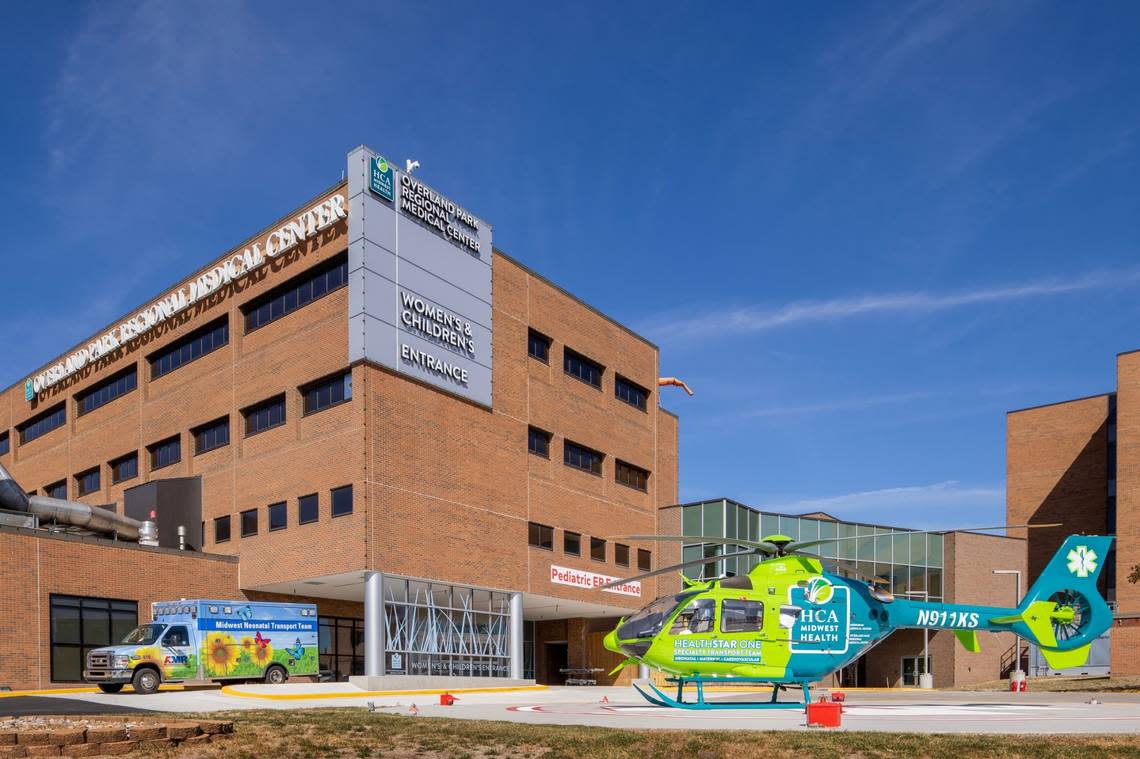‘A record number of kids’: Kansas City doctors and hospitals sound alarm over RSV
RSV cases in Kansas City are surging, filling up beds at Children’s Mercy and lengthening wait times at pediatrician offices and urgent cares in the metro — reminiscent of when hospitals filled up with COVID-19 patients.
“RSV arrived much earlier than expected. Typically, we started seeing RSV after Thanksgiving,” said Johnson County pediatrician Dr. Natasha Burgert. “This year, we have already been battling it for a month.
“We have had a record number of kids in the office who are positive with RSV. Which is good. We want kids to use their pediatric offices as much as they are able rather than going immediately to the ERs or urgent cares that are overburdened with patients.
“RSV itself is NOT causing more serious disease than in past years, it’s the sheer number of kids getting RSV at once that is stressing us out.”
The problem is only compounded with the arrival of flu season as well, doctors say.
RSV — respiratory syncytial virus — is not a new virus. It typically causes mild, cold-like symptoms, and most people recover in a week or two. But it can be serious for infants and older people. It is the most common cause of pneumonia in children younger than 1 in the United States, according to the Centers for Disease Control and Prevention.
And this year it’s hitting differently. Some parts of the country are already nearing their seasonal RSV peaks, the CDC says.
“We are seeing increased spread of respiratory illnesses in our area. Local hospitals are experiencing large numbers of hospitalizations due to RSV and flu,” said Janell Friesen, spokeswoman for the Unified Government Public Health Department in Kansas City, Kansas.
“Additionally, COVID is still circulating in our area, and is likely to increase this winter.”
Children’s Mercy reports longer-than-normal wait times at its urgent care and emergency department as it deals with a rise in both RSV and flu cases. “We are at high capacity,” said hospital spokeswoman Lisa Augustine.
But it’s not just children who are getting sick with RSV. The University of Kansas Health System, where doctors are tracking a concerning and steady rise in influenza hospitalizations, also reports rising numbers of adult RSV patients.
Adults at the highest risk for severe RSV infection are older than 65, have chronic heart or lung disease, or a weakened immune system.
“Overall our trends, unfortunately, at the health system are consistent with the national trends of just increasing rates, increasing numbers and of course, hospitalizations,” said Dr. Dana Hawkinson, medical director of infection prevention and control, during a recent media briefing.

At Overland Park Regional Medical Center, Dr. Gabriel Schifman, medical director of pediatric emergency medicine, said the hospital has seen a “100% increase in patient volume,” with 60 or so patients treated for viral illnesses, mostly RSV, in the pediatric ER over the past few weeks.
“While it’s RSV season, this is also due to the decrease in COVID-19 mitigation strategies,” Schifman said. “Masking has helped prevent children from getting sick and passing along common viruses.
“We are concerned about the possibility of a ‘twindemic’ — when RSV and flu season may create ‘a perfect storm.’
“Our bodies have not been used to all of these viruses, as we were protected the past two years with masks, no in-person school, no mass gatherings, etc. So now we have to catch up with all the viruses that our bodies were used to getting and fighting.
“It’s all here, and it’s all going to have to kind of run through the community.”

‘Hardest week of my life’
Pictures of sick babies and toddlers in hospital beds with nasal cannula stuck in their noses are popping up on social media as parents warn one another about the spread.
“4/5 kids sick with RSV in our house.”
“Parents please stop sending your sick kids to school. RSV is no joke. My poor baby.”
“Update on our sweet girl. She is fighting strep throat, pneumonia, AND RSV.”
“But parents — if you haven’t already noticed from social media, RSV is hitting hard this year.”
“All the information out right now, it seems really scary to have a sick kid,” University Health internist and pediatrician Dr. Jennifer McBride said in a recent media briefing.
Comedian Amy Schumer shared her scary RSV story on social media, too. The virus put her 3-year-old son in the hospital last week, forcing her to miss rehearsals for the “Saturday Night Live” episode she hosted over the weekend.
“This was the hardest week of my life,” Schumer wrote in an Instagram post on Sunday. “I missed Thursday rehearsals when my son was rushed to ER and admitted for RSV. Shout out to all the parents going though this right now.
“I got to be with him the whole day at the hospital and the beautiful humans at @nbcsnl couldn’t have been more supportive. My son is home and better.”

RSV symptoms
RSV and flu symptoms can look alike, but the cough is different.
“Flu is high fever, runny nose, wet cough, sore throat, and muscle aches. RSV can be all of the above, but the cough is often described as ‘tight’ or ‘wheezy,’” said Burgert.
“RSV also makes children breathe faster and with more effort than the flu. However, I have certainly been fooled before — the two can look quite similar. The only way we know is to test.”
Burgert advises parents with sick kids to call their pediatrician first. “They will be able to assess your child’s status over the phone or in the office, and give strict instructions of what to do next,” she said.
But if they’re having trouble breathing, that’s a trip the ER, doctors say.
“Are they working really really hard to breathe?” said McBride. “And the way to see that in an infant, who can’t tell you that, you can hear them grunting, or hear them breathing.
“You can see their chest working really hard to breathe, so you can see the muscles between their ribs moving. Sometimes you can see their nostrils flaring. The most severe part of that is color change, they’re starting to look a little pale. a little, we call it dusky.”
McBride also recommends a trip to the ER if an infant stops drinking.
If they’re having trouble breathing they might not be able to drink from a bottle or breast feed, so they become dehydrated. Signs to watch for: They don’t make tears when they cry, they wet their diapers less, they’re not as feisty as usual, said McBride.
In October, Becker’s Hospital Review reported that some hospitals that are dealing with 300% increases in RSV cases over September are using social media to educate parents on when they should seek emergency care for their children.
Others are leading parents to nurse-on-call hotlines to try and lighten the growing stress on ER staff.

HCA Midwest Health, for instance, has a 24/7 Care Navigator for virtual health visits. It also runs a Nurses On-Call hotline. Both can be reached on the health system’s website, hcamidwest.com.
The Children’s Mercy 24/7 Nurse Advice Line, at 816-234-3188, is also available for parents or guardians who have questions but can’t reach their primary care provider.
This is the time of year that pediatricians typically urge parents to keep their sick children at home, advice they know is often ignored.
With influenza moving into the metro, health officials are also urging young and old to get a flu shot. Kids aren’t getting vaccines as much as they were pre-pandemic.
And as if RSV, flu and lingering COVID-19 — the so-called “tripledemic” — wasn’t bad enough, McBride said a stomach bug is just around the corner.
The Star’s Joseph Hernandez contributed to this report.
